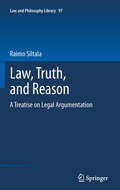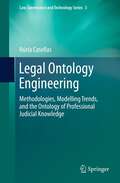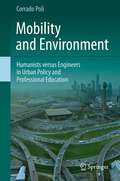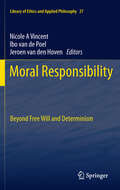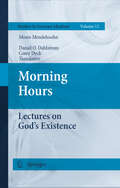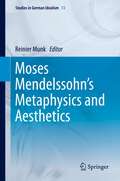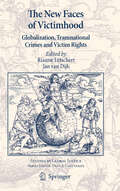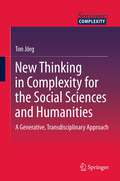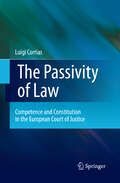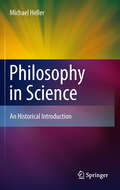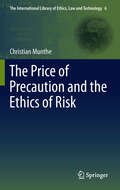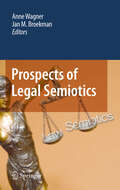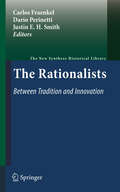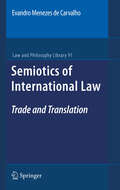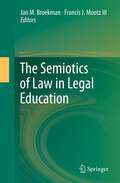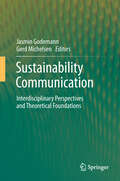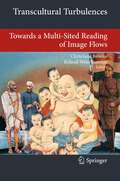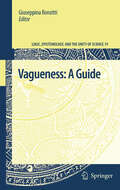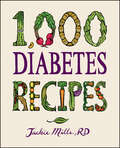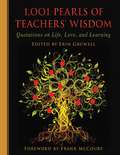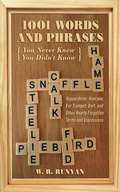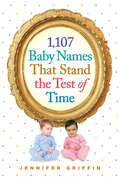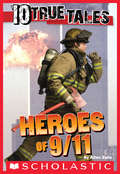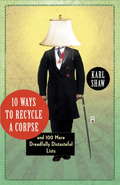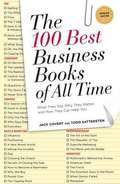- Table View
- List View
Law, Truth, and Reason
by Raimo SiltalaThis book is an innovative contribution to analytical jurisprudence. It is mainly based on the distinct premises of linguistic philosophy and Carnapian semantics, but also addresses the issues of institutional philosophy, social pragmatism, and legal principles as envisioned by Dworkin, among others. Wróblewski´s three ideologies (bound/free/legal and rational) and Makkonen´s three situations (isomorphic/semantically vague/normative gap) of judicial decision-making are further developed by means of 10 frames of legal analysis as discerned by the author. With the philosophical theories of truth serving as a reference, the frames of legal analysis include the isomorphic theory of law (Wittgenstein, Makkonen), the coherence theory of law (Alexy, Peczenik, Dworkin), the new rhetoric and legal argumentation theory (Perelman, Aarnio), social consequentialism (Posner), natural law theory (Fuller, Finnis), and the sequential model of legal reasoning by Neil MacCormick and the Bielefelder Kreis. At the end, some key issues of legal metaphysics are addressed, like the notion of legal systematics and the future potential of the analytical approach in jurisprudence.
Legal Ontology Engineering
by Núria CasellasEnabling information interoperability, fostering legal knowledge usability and reuse, enhancing legal information search, in short, formalizing the complexity of legal knowledge to enhance legal knowledge management are challenging tasks, for which different solutions and lines of research have been proposed. During the last decade, research and applications based on the use of legal ontologies as a technique to represent legal knowledge has raised a very interesting debate about their capacity and limitations to represent conceptual structures in the legal domain. Making conceptual legal knowledge explicit would support the development of a web of legal knowledge, improve communication, create trust and enable and support open data, e-government and e-democracy activities. Moreover, this explicit knowledge is also relevant to the formalization of software agents and the shaping of virtual institutions and multi-agent systems or environments. This book explores the use of ontologism in legal knowledge representation for semantically-enhanced legal knowledge systems or web-based applications. In it, current methodologies, tools and languages used for ontology development are revised, and the book includes an exhaustive revision of existing ontologies in the legal domain. The development of the Ontology of Professional Judicial Knowledge (OPJK) is presented as a case study.
Mobility and Environment
by Corrado PoliMobility and Environment calls for a mobility revolution which does not simply mean taking a bus instead of a car: it implies a dramatic shift in the political debate from a technical to a political culture. The author introduces his book by disputing "non-political" Sustainable Development policies which are among the major culprits for the conservatism in environmental policies. For at least forty years, urban mobility policies, based on compulsive infrastructure building, have failed both in satisfying transportation demand and in coping with high environmental impacts. Nonetheless decision-makers keep employing the same professionals and therefore they act as shepherds who commit their sheep in the wolf's custody. Corrado Poli treats mobility policy as a political, ethical, social and educational issue rather than as a mere civil engineering one. Mobility and Environment challenges some deeply entrenched professional and economic monopolies which negatively affect urban and transportation planning in North America and Europe, and argues the old idea which bounded transportation and communication. A real environmentalist effort in traffic planning should begin from new technologies and from the analysis of citizens preferences. A series of new projects are presented which include mobility demand reduction and focus on democracy in planning.
Moral Responsibility
by Ibo van de Poel Jeroen Van Hoven Nicole A. VincentIt is well over a decade since John Fischer and Mark Ravizza - and before them, Jay Wallace and Daniel Dennett - defended responsibility from the threat of determinism. But defending responsibility from determinism is a potentially endless and largely negative enterprise; it can go on for as long as dissenting voices remain, and although such work strengthens the theoretical foundations of these theories, it won't necessarily build anything on top of those foundations, nor will it move these theories into new territory or explain how to apply them to practical contexts. To this end, the papers in this volume address these more positive challenges by exploring how compatibilist responsibility theory can be extended and/or applied in a range of practical contexts. For instance, how is the narrow philosophical concept of responsibility that was defended from the threat of determinism related to the plural notions of responsibility present in everyday discourse, and how might this more fine-grained understanding of responsibility open up new vistas and challenges for compatibilist theory? What light might compatibilism shed, and what light might be shed upon it, by political debates about access to public welfare in the context of responsibility for one's own health, and by legal debates about the impact of self-intoxication on responsibility. Does compatibilist theory, which was originally designed to cater for analysis of individual actions, scale to scenarios that involve group action and collective responsibility -- e.g. for harms due to human-induced climate change? This book's chapters deal with a range of theoretical problems discussed in classic compatibilist literature -- e.g. the relationship between responsibility and capacity, the role of historical tracing in discounting the exculpatory value of incapacities, and the justifiability of retributive punishment. But instead of motivating their discussions by focusing on the alleged threat that determinism poses to responsibility, these chapters' authors have animated their discussions by tackling important practical problems which crop up in contemporary debates about responsibility.
Morning Hours
by Moses Mendelssohn Corey Dyck Daniel O. DahlstromThe last work published by Moses Mendelssohn during his lifetime, Morning Hours (1785) is also the most sustained presentation of his mature epistemological and metaphysical views, all elaborated in the service of presenting proofs for the existence of God. But Morning Hours is much more than a theoretical treatise. It also plays a central role in the drama of the Pantheismusstreit, Mendelssohn's "dispute" with F. H. Jacobi over the nature and scope of Lessing's attitude toward Spinoza and "pantheism". As the latest salvo in a war of texts with Jacobi, Morning Hours is also Mendelssohn's attempt to set the record straight regarding his beloved Lessing in this connection, not least by demonstrating the absence of any practical (i.e., religious or moral) difference between theism and a "purified pantheism".
Moses Mendelssohn's Metaphysics and Aesthetics
by Reinier MunkThis book presents an extended dialogue in essay form between specialists in the work of Moses Mendelssohn, and experts in important trends in related late-seventeenth and eighteenth century thought. The first group of contributors explores themes in Mendelssohn's metaphysics and aesthetics, presenting both their internal argumentative coherence and their historical context. The second outlines the context of Mendelssohn's views on specific topics, and describes his contribution to the discussion of them. The essays are organized in four sections. The first pairs two essays on Mendelssohn's theory of language and writing. The second section offers three essays addressing a number of topics in Mathematics and philosophy in Mendelssohn. A group of eight essays follows, dealing with Metaphysics in a historical context. The fourth section presents five essays discussing Mendelssohn's Aesthetics in a historical context. Moses Mendelssohn's Metaphysics and Aesthetics arises from a conference held in Amsterdam in 2009, which gathered numerous authorities to address the central theme. Taken together, these eighteen essays present a sophisticated portrait of Mendelssohn, packed with detail and rich in complexity.
The New Faces of Victimhood
by Jan Van Dijk Rianne LetschertBesides generating wealth, globalization makes victims, including victims of new forms of crime. In this edited book of scholarly essays, international lawyers and criminologists reflect on the legal challenges posed by these dark sides of globalization. Examples include transnational organised crime, human trafficking and corruption, cyber crimes, international terrorism, global corporate crime and cross-border environmental crimes. The authors reflect on the limits of domestic systems of justice in providing protection, empowerment and redress to the victims of these emerging forms of global insecurity. They argue for the need of better international or supra-national institutional arrangements such as legal instruments and actions of the United Nations or regional organizations such as the European Union. In part I Jan Van Dijk and Rianne Letschert present an overview of trends in criminal victimization against the backdrop of globalization using a unique set of statistical indicators. By placing this issue in the framework of the human security concept, the authors draw out its broader political and normative implications. Theologist Ralf Bodelier explains how modern communication technologies have heightened sensitivities among the general public for human insecurities anywhere in the world. In his view, a new global conscience is in the making that may become the cornerstone of international solidarity and action. Marc Groenhuijsen and Rianne Letschert describe the emergence of national and international legal and institutional arrangements to offer remedies to victims of crime in an era of globalization. In part II a selection of experts analyse the specific issues surrounding the protection and empowerment of victims of different types of international crimes such as human trafficking, organised crime/corruption, terrorism, global corporate crime and cross border environmental crimes. In part III focused attention is given to the special challenges and opportunities of protecting and assisting crime victims in cyberspace. Part IV deals with emerging victim issues in humanitarian law such as the accountability of private military companies and the implementation of the ambitious victim provisions in the statute of the International Criminal Court including the establishment of a global fund for reparations. In the final part of the book some of its core authors formulate their ideas about the international institutional arrangements that should be put in place to offer justice to the victims of globalization. A concrete proposal is made for the transformation of the United Nations 1985 Declaration on the Principles of Justice for Victims of Crime and Abuse of Power into a full-fledged UN convention. In the final chapter further proposals are made for the increased involvement of regional organisations such as the European Union in the protection of victims of global crime.
New Thinking in Complexity for the Social Sciences and Humanities
by Ton JörgThe underlying idea and motive for the book is that the notion of complexity may humanize the social sciences, may conceive the complex human being as more human, and turn reality as assumed in our doing social science into a more complex, that is a richer reality for all. The main focus of this book is on new thinking in complexity, with complexity to be taken as derived from the Latin word complexus: 'that which is interwoven.' The trans-disciplinary approach advocated here will be trans-disciplinary in two ways: firstly, by going beyond the separate disciplines within the fields of both natural sciences and social sciences, and, secondly, by going beyond the separate cultures of the natural sciences and of the social sciences and humanities.
The Passivity of Law
by Luigi CorriasAt the heart of this book, a question: what to make of the creeping competences of the EU and of the role the European Court of Justice plays in this respect? Taking the implied powers doctrine as its starting point, the hypothesis is that it shows what is ultimately at stake in the concept of legal competence: the problem of creation in law, or the relationship between constituent and constituted power. By rethinking this relationship, a new conceptual framework to make sense of creeping competences is designed. For this, the work of Maurice Merleau-Ponty is used. Tracing back the philosophical roots of creation, legal constitution is understood as constitution in passivity. This leads to a whole new interpretation of the relationship between law and politics, rule following, authority, competences and European integration. From this perspective specific chapters in the case law of the European Court of Justice are reread and the logic behind the competence creep is unmasked. new back cover copy: Europe's constitutional journey has not been a smooth one, and a better division and definition of competence in the European Union is a key issue that needs to be addressed. How can the division of competence be made more transparent? Does there need to be a reorganization of competence? How can it be ensured that the redefined division of competence will not lead to a creeping expansion of the competence of the Union or to encroachment upon the exclusive areas of competence of the Member States and, where there is provision, regions? And how can it be ensured that the European dynamic does not come to a halt? Indeed, has the creeping expansion of the competence of the Union already come to a halt? These are the questions this book explores. The Passivity of Law: Competence and Constitution in the European Court of Justice opens with a legal account of competence creep, including the role that the European Court of Justice plays in it and a sketch of the present division of competences and the main principles regulating it. It then discusses the relationship between constituent power and constituted or constitutional power from the viewpoint of the history of constitutional history before offering an alternative theory of their relationship, known as "chiastic theory," which is based on the philosophical investigations of Merleau-Ponty. It details how chiastic theory can be used to make sense of the Court's role in the competence creep in general and the doctrine of implied powers in particular, and it utilizes several case studies concerning competences to sustain this claim. Aimed at researchers and practitioners in Philosophy, Phenomenology, Political Science, the Social Sciences and numerous fields of law, this monograph is a seminal work in the evolving theory and practice of EU law.
Philosophy in Science
by Michael HellerThe traditional topics of the "philosophy of nature" -- space, time, causality, the structure of the universe -- are overwhelmingly present in our modern scientific theories. This book traces the complex paths that discussion of these topics has followed, from Plato and Aristotle, through Descartes, Leibniz, Kant and other great thinkers, right up to the relativistic cosmologies and the grand unified theories of contemporary science. In the light of this historical development, it becomes clear that modern science gives us not only a technological power over the world, but also a deeper understanding of physical reality. In this sense, science could be regarded as an heir to the traditional "philosophy of nature". Moreover, the reader will learn why science itself deserves to be the subject of philosophical reflection.
The Price of Precaution and the Ethics of Risk
by Christian MuntheChristian Munthe undertakes an innovative, in-depth philosophical analysis of what the idea of a precautionary principle is and should be about. A novel theory of the ethics of imposing risks is developed and used as a foundation for defending the idea of precaution in environmental and technological policy making against its critics, while at the same time avoiding a number of identified flaws. The theory is shown to have far-reaching practical conclusions for areas such as bio-, information- and nuclear technology, and global environmental policy in areas such as climate change. The author argues that, while the price we pay for precaution must not be too high, we have to be prepared to pay it in order to act ethically defensible. A number of practical suggestions for precautionary regulation and policy making are made on the basis of this, and some challenges to basic ethical theory as well as consumerist societies, the global political order and liberal democracy are identified. Munthe's book is a well-argued contribution to the PP debate, putting neglected justificatory and methodological questions at the forefront. His many discussions of alternative accounts as well as his drawing out the consequences of his own suggestion in practical cases give the reader a thorough, holistic sense of what justification of PP amounts to. /..../ Munthe's main case, his argumentation for the requirement of precaution as a moral norm, is convincing and puts a strong pressure on too narrow alternative suggestions on how it should be perceived and justified, and he launches a plausible defence of its practical usability.
Prospects of Legal Semiotics
by Anne Wagner Jan M. BroekmanThis book examines the progress to date in the many facets - conceptual, epistemological and methodological - of the field of legal semiotics. It reflects the fulfilment of the promise of legal semiotics when used to explore the law, its processes and interpretation. This study in Legal Semiotics brings together the theory, structure and practise of legal semiotics in an accessible style. The book introduces the concepts of legal semiotics and offers an insight in contemporary and future directions which the semiotics of law is going to take. A theoretical and practical oriented synthesis of the historical, contemporary and most recent ideas pertaining to legal semiotics, the book will be of interest to scholars and researchers in law and social sciences , as well as those who are interested in the interdisciplinary dynamics of law and semiotics.
The Rationalists: Between Tradition and Innovation
by Justin E. Smith Dario Perinetti Carlos FraenkelThis volume draws a balanced picture of the Rationalists by bringing their intellectual contexts, sources and full range of interests into sharper focus, without neglecting their core commitment to the epistemological doctrine that earned them their traditional label. The collection of original essays addresses topics ranging from theodicy and early modern music theory to Spinoza's anti-humanism, often critically revising important aspects of the received picture of the Rationalists. Another important contribution of the volume is that it brings out aspects of Rationalist philosophers and their legacies that are not ordinarily associated with them, such as the project of a Cartesian ethics. Finally, a strong emphasis is placed on the connection of the Rationalists' philosophy to their interests in empirical science, to their engagement in the political life of their era, and to the religious background of many of their philosophical commitments.
Semiotics of International Law
by Evandro Menezes de CarvalhoLanguage carries more than meanings; language conveys a means of conceiving the world. In this sense, national legal systems expressed through national languages organize the Law based on their own understanding of reality. International Law becomes, in this context, the meeting point where different legal cultures and different views of world intersect. The diversity of languages and legal systems can enrich the possibilities of understanding and developing international law, but it can also represent an instability and unsafety factor to the international scenario. This multilegal-system and multilingual scenario adds to the complexity of international law and poses new challenges. One of them is legal translation, which is a field of knowledge and professional skill that has not been the subject of theoretical thinking on the part of legal scholars. How to negotiate, draft or interpret an international treaty that mirrors what the parties, - who belong to different legal cultures and who, on many occasions, speak different mother tongues - ,want or wanted to say? By analyzing the decision-making process and the legal discourse adopted by the WTO's Appellate Body, this book highlights the active role of language in diplomatic negotiations and in interpreting international law. In addition, it also shows that the debate on the effectiveness and legitimacy of International Law cannot be separated from the linguistic issue.
The Semiotics of Law in Legal Education
by Jan M. Broekman Francis J. Mootz IIIThis book offers educational experiences, including reflections and the resulting essays, from the Roberta Kevelson Seminar on Law and Semiotics held during 2008 - 2011 at Penn State University's Dickinson School of Law. The texts address educational aspects of law that require attention and that also are issues in traditional jurisprudence and legal theory. The book introduces education in legal semiotics as it evolves in a legal curriculum. Specific semiotic concepts, such as "sign", "symbol" or "legal language," demonstrate how a lawyer's professionally important tasks of name-giving and meaning-giving are seldom completely understood by lawyers or laypeople. These concepts require analyses of considerable depth to understand the expressiveness of these legal names and meanings, and to understand how lawyers can "say the law," or urge such a saying correctly and effectively in the context of a natural language that is understandable to all of us. The book brings together the structure of the Seminar, its foundational philosophical problems, the specifics of legal history, and the semiotics of the legal system with specific themes such as gender, family law, and business law.
Sustainability Communication
by Gerd Michelsen Jasmin GodemannModern and professional communication is required to realise the goal of sustainability in society. This book develops a theoretical and empirical framework, integrating interdisciplinary perspectives from communications theory, psychology, sociology, educational sciences, systems theory and constructivism. Its aim is to inform the establishment of sustainability communication. Complementing this theoretical framework, the book provides methods and concepts in a range of fields such as corporate practice, education and media. The book addresses the scientific community and students as well as communicators in all categories of sustainability communication.
Transcultural Turbulences
by Christiane Brosius Roland WenzlhuemerToday, hardly anything moves as fast across the globe as images and media. This fact opens new avenues to explore social and cultural change, but also poses new theoretical challenges of how to grasp and better understand these changes and flows. Moreover, such movements across geophysical and cultural borders have a historical depth that enables us to explore globalisation and localisation in new ways. Transculturality is still a relatively new field of research in the Humanities through which we sharpen our competence and 'literacy' to come to terms with the complexity of globalised cultures. This volume ventures into new domains of research on the transculturality of images and addresses the need to develop new or modify established often ethno- and Eurocentric interpretations of what happens when images travel. It does so by bringing together cutting-edge research from fields such as art history, cultural anthropology, colonial history, Islamic studies, religious studies and literary criticism.
Vagueness: A Guide
by Giuseppina RonzittiThis volume explores how vagueness matters as a specific problem in the context of theories that are primarily about something else. After an introductory chapter on the Sorites paradox, which exposes the various forms the paradox can take and some of the responses that have been pursued, the book proceeds with a chapter on vagueness and metaphysics, which covers important questions concerning vagueness that arise in connection with the deployment of certain key metaphysical notions. Subsequent chapters address the following: vagueness and logic, which discusses the sort of model theory that is suggested by the main, rival accounts of vagueness; vagueness and meaning, which focuses on contextualist, epistemicist, and indeterminist theories; vagueness and observationality; vagueness within linguistics, which focuses on approaches that take comparison classes into account; and the idea that vagueness in law is typically extravagant and that extravagant vagueness is a necessary feature of legal systems.
1,000 Diabetes Recipes (1,000 Recipes #20)
by Jackie MillsA giant new diabetes cookbook from the award-winning 1,000 Recipes seriesThis massive cookbook is packed with tasty, diabetic-friendly recipes the whole family will love. Recipes cover ever meal of the day and offer enough variety to satisfy any craving—from sausage pizza to strawberry pie. It's loaded with nutrition information, menu-planning advice, cooking tips, carb exchanges, and virtually everything else you need to cook and eat right for diabetes. 1,000 Diabetes Recipes covers everything from light snacks and sandwiches to hearty main dishes and delectable desserts. It offers classic comfort foods updated for diabetics, such as lasagna and pot roast, as well as thrilling contemporary flavors like Watermelon Salad, Vietnamese Tuna, and Grilled Chicken Breasts with Coconut-Cilantro Chutney. Written by Jackie Mills, author of The Big Book of Diabetic Desserts and a food writer, registered dietitian, and a recipe developer for national magazines such as Cooking Light and Family CircleThe book features sections on vegetarian main dishes, desserts, breakfast and brunch, pizzas and sandwiches, and moreIncludes shopping, cooking, and meal planning adviceWhether you have diabetes or cook for a loved one who does, 1,000 Diabetes Recipes is the ultimate resource for tasty, diabetic-friendly meals.
1,001 Pearls of Teachers' Wisdom
by Erin Gruwell Frank MccourtThe Little Book of Teachers' Wisdom is a fun and inspirational book packed with words of wisdom on the art of teaching. With more than 3,000 entries, it includes the thoughts on the art of teaching from hundreds of teachers, professors, authors, and politicians, including Aristotle, the Buddha, Mark Twain, Frederick Douglass, Helen Keller, Freud, Albert Einstein, Gandhi, Winston Churchill, and John Lennon. It's the perfect gift for a teaching school graduate, a favorite teacher, or anyone with a passion for learning and educating.
1,001 Words and Phrases You Never Knew You Didn't Know: Hopperdozer, Hoecake, Ear Trumpet, Dort, and Other Nearly Forgotten Terms and Expressions
by W. R. RunyanAs times change so do the things we use and what we call them. W.R. Runyan has compiled a fascinating collection of words and phrases that, once common everywhere in America, are little known today. This book is a celebration of our linguistic past that will be a treat from word lovers everywhere. Do you know any of these: Snaffle, Steelie, Gully Washer, Cabriolet, Calk, Hardpan, Carbuncle, Pie Bird, Fid, or Hame? Did you know that a "Horse Apple" is actually an orange? Or that "Rolley Holley" is a marble game? With over one hundred illustrations, this is a book that will take you on a walk back in time and give you a chance to hear from generations past--in their own voice, with their own words.
1,107 Baby Names That Stand the Test of Time
by Jennifer GriffinThere are tens of thousands of baby names out there—and books that dutifully list them. And then there is 1,107 Baby Names That Stand the Test of Time—a curated, considered, opinionated, and richly informative guide that winnows down the world of baby names to help moms and dads make smart choices, sidestep the trendiness trap, and avoid the ranks of parents (more than 54%) who later regret the name they chose. This is the book for parents who know they are naming not only a cuddly newborn but an actual human being who will be proud to carry this name throughout his or her entire life—a name like Eloise, the French version of Louise, which means “fighter,” perfect for a feisty girl; Brendan, a solid Celtic name meaning “prince”; or Beatrice, an old-fashioned beauty with roots in both Dante and Shakespeare. 1,107 Baby Names makes a strong case for each name selected and features the name’s definition, its use in history, its connotations and subtleties, and its “meaning” in the fuller, cultural sense of the word. Included are variations, nicknames (with suggestions for working backward from a nickname to something with more gravitas), and, especially useful, alternatives—names that have the same flavor but may be less common or sound better with a particular last name or family background. There’s a guide to the basic rules of baby-naming: scansion—the sounds, syllables, and rhythm of a name, and how it goes with a last name; ethnic traditions; recent trends; and effective use of a middle name. 1,107 Baby Names was formerly published under the title Bring Back Beatrice! and is now offered with a clearer, more direct title. But the distinctive promise is the same: This is the book you need to find a name that reflects your values and will bring joy to your child.
10 True Tales: 9/11 Heroes (Ten True Tales)
by Allan ZulloTen true stories of real-life heroes during the attacks on 9/11! When Captain Jay Jonas of the Fire Department of New York hears an emergency radio message about the World Trade Center, he has no idea of the terrible conditions he and his team will face. Arriving at the burning building, the firefighters must summon all their courage. On the same morning, just outside Washington, D.C., a jetliner piloted by terrorists slams into the Pentagon. Can Colonel Philip McNair save lives inside the flaming building? From the World Trade Center and the Pentagon to a hijacked plane above Pennsylvania, these ten stories of true American heroes on the day that changed America -- September 11, 2001.
10 Ways to Recycle a Corpse: And 100 More Dreadfully Distasteful Lists
by Karl ShawPrepare to be even more revolted, flabbergasted, appalled, and completely entertained by this incredible follow-up collection of absolutely true trivia from the author of 5 People Who Died During Sex. Nothing is too insane, too inane, or too sacred for Karl Shaw's eclectic lists of the world's very worst. DID YOU KNOW... ...that according to recent estimates (2010) your body is worth between $10,000-$100,000 on today's open market--from companies legitimately trading body parts from willing donors to recognized medical facilities? ...that the great plague of Athens in 404, which lead to the defeat of the Athenians in the Peloponnesian War, was probably caused by contaminated cereals? ...that Benjamin Franklin liked to sit stark naked in front of his open windows, calling the practice "taking an air bath"? ...that in the last days of his life, the actor Steve McQueen lived on a diet largely comprised of boiled alligator skin and apricot pits, washed down with urine? From the Trade Paperback edition.
The 100 Best Business Books of All Time: What They Say, Why They Matter, and How They Can Help You
by Jack Covert Todd SatterstenThousands of business books are published every year— Here are the best of the best After years of reading, evaluating, and selling business books, Jack Covert and Todd Sattersten are among the most respected experts on the category. Now they have chosen and reviewed the one hundred best business titles of all time—the ones that deliver the biggest payoff for today’s busy readers. The 100 Best Business Books of All Time puts each book in context so that readers can quickly find solutions to the problems they face, such as how best to spend The First 90 Days in a new job or how to take their company from Good to Great. Many of the choices are surprising—you’ll find reviews of Moneyball and Orbiting the Giant Hairball, but not Jack Welch’s memoir. At the end of each review, Jack and Todd direct readers to other books both inside and outside The 100 Best. And sprinkled throughout are sidebars taking the reader beyond business books, suggesting movies, novels, and even children’s books that offer equally relevant insights. This guide will appeal to anyone, from entry-level to CEO, who wants to cut through the clutter and discover the brilliant books that are truly worth their investment of time and money. .
